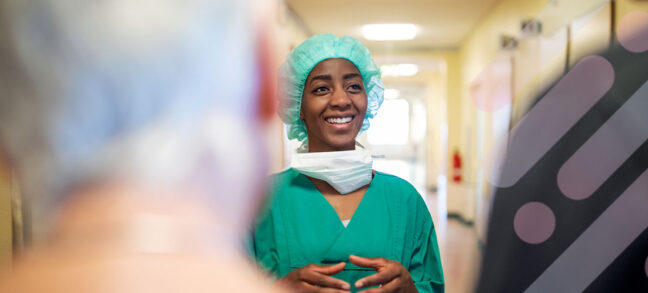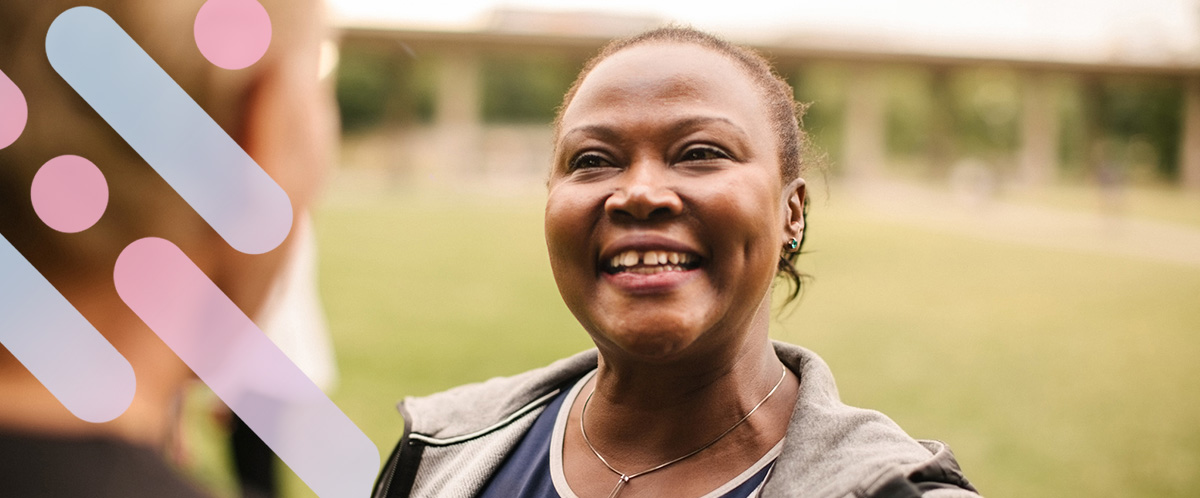More women who have had a mastectomy are choosing to have reconstruction surgery.1 A choice that has been shown to have a positive impact on quality of life.2 Despite this, it’s still a very personal, very big decision. One that requires a lot of encouragement and support from friends and family. Learn what you can say (and should never say) to help the women in your life get through it.
what you shouldn’t say
yay! free breast surgery.
It’s surprising how many people not affected by breast cancer view reconstruction as a bonus—a chance to get the breasts you’ve always wanted. Not surprisingly, that’s not at all how survivors and previvors see it.
Choosing to enhance your natural breasts is entirely different from women choosing to reconstruct breasts after being forced to remove their natural ones. It could be argued that reconstruction is a more complicated surgery than breast augmentation. Beyond that, framing it this way minimizes the experience and complicated feelings the survivor or previvor has been forced to face. Also, “free” is misleading, since many still have to pay copays or insurance premiums, and sometimes extra expenses for out-of-network providers.
are you sure you’re making the right decision?
Breast cancer survivors and previvors have already had to make countless difficult decisions and are often forced to question what’s right. But who can say? After all, what’s right for someone else might not be right for them. The decision to have reconstruction surgery is yet another difficult decision, one your friend or family member may have struggled with. In the end, she chose what she believes is best for her. Your job is to respect and support her journey.
my mom (friend, aunt, neighbor, stylist…) had reconstruction and she’s unhappy with the results.
It’s never helpful to hear this, especially before surgery, when your loved one may already be second-guessing her decision. Also, everyone’s experience is different and depends on a number of factors. Therefore, it has absolutely no bearing on the next person’s experience.
what you should say
how can I help?
Breast reconstruction is a major surgery and can be a very emotional journey.3 Many are surprised at how difficult and long recovery can become. Patients often feel tired and sore for weeks. And most are unable to resume normal activities until six to eight weeks after reconstruction.4 Needless to say, from mowing the yard to walking the dog, there’s a lot your loved one may need help with. And chances are, she’s hesitant to ask. Help her out by doing the asking first.
I’m here for you.
Reconstruction can bring about all kinds of emotions, including insecurity and anxiety. Remind your loved one that you’re there to listen. Help keep her outlook positive as she accepts her new normal.
what movie should we watch?
Or wine should I bring? Or takeout should I grab? Recovering from reconstruction surgery takes time. Lots of time. It’s easy to go stir-crazy when you’re stuck at home and not able to move much. Help your friend or family member take her mind off of things by doing what friends do—just hang out.
Resensation Blog

How does mastectomy impact the nerves in the breast?
One sometimes overlooked aspect of mastectomy is its impact on nerves. Read what happens to nerves during mastectomy and explore…
Read More
What happens during implant breast reconstruction with Resensation®?
By repairing sensory nerves, Resensation® enables you to potentially regain sensation to your chest. Read how this procedure works during…
Read More
how resensation® helped Leanna feel secure in her family’s future
With Resensation®, Leanna can be there to watch her kids grow up—without losing the feeling of being whole.
Read More
sensory retraining: what is it, and how can it help me after resensation®?
Sensory retraining is a series of exercises designed to help you reconnect with your body after breast reconstruction with Resensation®.
Read More